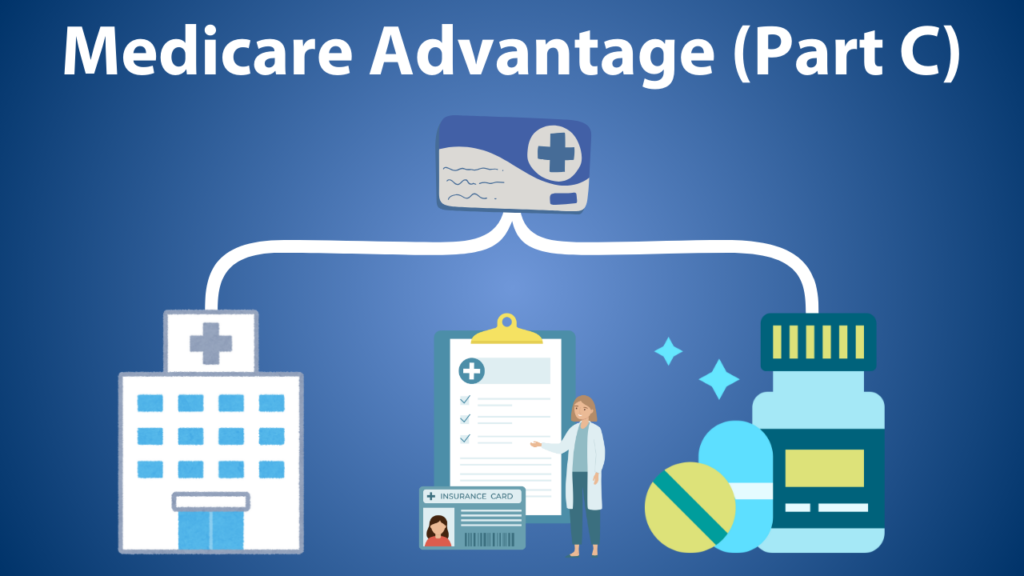Overview
If you’re eligible for both Medicare and Medicaid, you may qualify for a Medicare Advantage Plan that enhances your benefits while reducing your out-of-pocket healthcare costs.
This guide breaks down what Medicare Advantage (Part C) is, how it works, and what options are available for individuals with dual eligibility — those who qualify for both Medicare and Medicaid.

What is Medicare Advantage?
Medicare Advantage Plans (also known as Part C) are offered by Medicare-approved private insurance companies. These plans provide all your coverage under:
Medicare Part A (Hospital Insurance)
Medicare Part B (Medical Insurance)
In addition to covering hospital and medical services, most Medicare Advantage plans also include Part D prescription drug coverage and extra benefits like:
Dental care
Vision services
Hearing aids
Wellness programs
Transportation assistance
Over-the-counter item allowances (varies by plan)
Types of Medicare Advantage Plans
Each plan type offers different levels of flexibility, provider access, and costs. The main types include:
1. Health Maintenance Organization (HMO) Plans
Require use of in-network providers
Usually need referrals for specialists
Lower out-of-pocket costs
2. HMO Point-of-Service (HMOPOS) Plans
Mostly in-network care
Some out-of-network coverage allowed (at higher cost)
3. Preferred Provider Organization (PPO) Plans
Flexible provider choice
You can see out-of-network doctors at an additional cost
No referrals needed
4. Private Fee-for-Service (PFFS) Plans
May allow use of any Medicare-approved provider
Providers must agree to plan terms each time you receive care
5. Medicare Medical Savings Account (MSA) Plans
Combine a high-deductible plan with a medical savings account
Funds deposited into your account can be used to pay for healthcare services
Special Needs Plans (SNPs) for Dual-Eligible Individuals
If you’re eligible for both Medicare and Medicaid, you may qualify for a Medicare Special Needs Plan (SNP) — a type of Medicare Advantage plan tailored to people with specific financial or medical needs.
Dual Eligible SNPs (D-SNPs) are designed for people who qualify for both programs and typically offer:
Coordinated care between Medicare and Medicaid providers
Prescription drug coverage (required)
Extra help with premiums, copays, and deductibles
Benefits like transportation to appointments or home meal delivery
To explore SNP options in your area, click here.
Preexisting Conditions and Medicare Advantage
You can enroll in a Medicare Advantage Plan even with preexisting conditions (except in most cases of End-Stage Renal Disease, though this restriction has been easing under current CMS rules).
You maintain all your Medicare rights and protections, including:
The right to appeal coverage decisions
Access to emergency services
Protection against discrimination
Things to Consider Before Enrolling
Costs vary by plan and location – premiums, deductibles, and copays can differ significantly.
Provider networks – not all plans cover your preferred doctors or hospitals.
Drug coverage – ensure your medications are covered under the plan’s formulary.
Medicaid coordination – D-SNPs are often your best option if you’re dual-eligible.
You can compare plans available in your area here.
Next Steps: Speak with a Licensed Medicare Specialist
If you’re unsure about your eligibility, need help comparing plans, or want someone to walk you through enrollment, contact MedicareMall today.
We’ll connect you with a licensed representative who can answer your questions and help you find a plan that fits your needs and budget — all at no cost to you.
